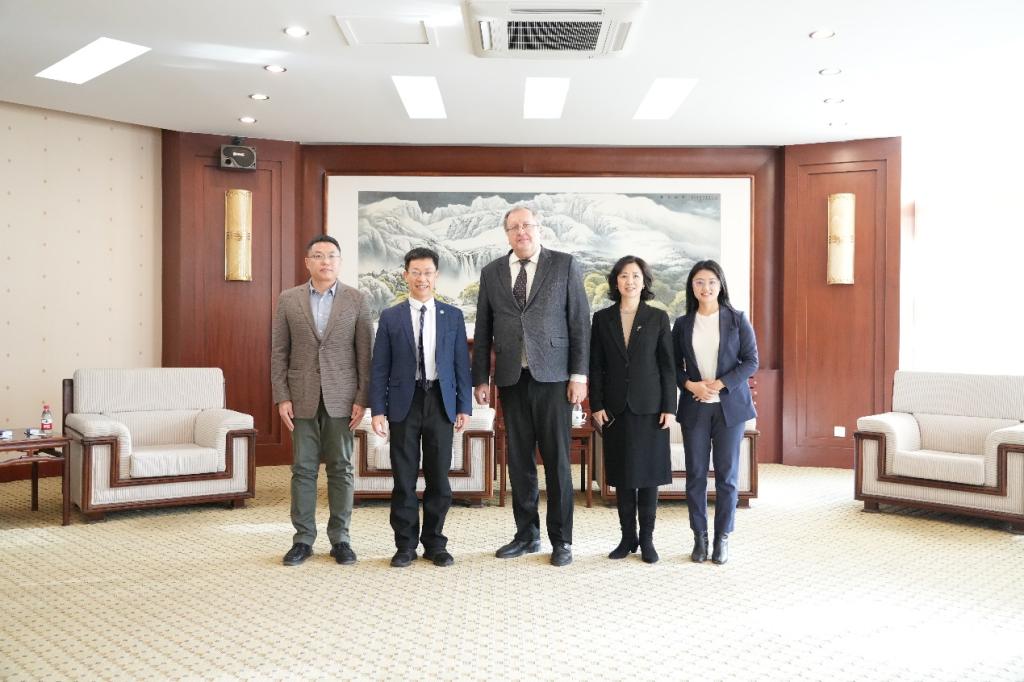On December 6, 2023, the Second Lecture of the Overseas Presidents’ Lecture Series was held at the Office Building of Puhe Campus. Stanislav Leonidovich Tkachenko, professor of Department of International Relations of St. Petersburg State University and former Vice President of St. Petersburg State University, was invited to give an academic presentation titled ‘Prospects and Challenges of Construction of China-Mongolia-Russia Economic Corridor’. Professor Yu Miaojie, a deputy of the 14th National People’s Congress, a member of the Standing Committee of the 14th Liaoning Provincial People’s Congress, and Vice Secretary of the Party Committee and President of Liaoning University, attended the meeting and delivered a welcome speech. The meeting was chaired by Dr. Yin Ruyu, Executive Director of the Sino-Russian Far East Cooperation and Development Research Institute.
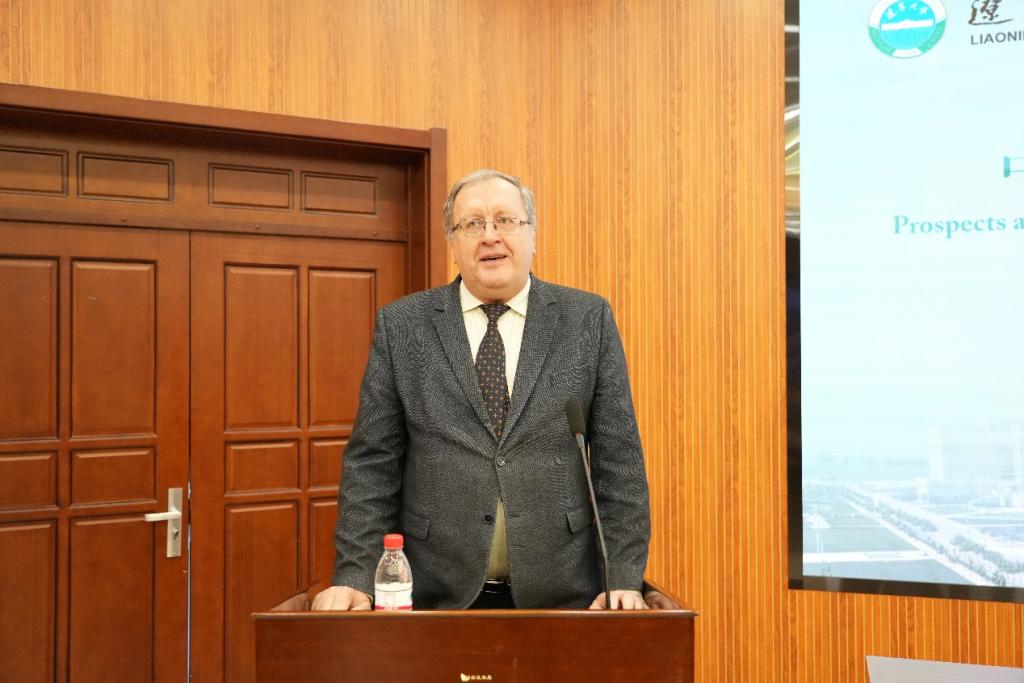

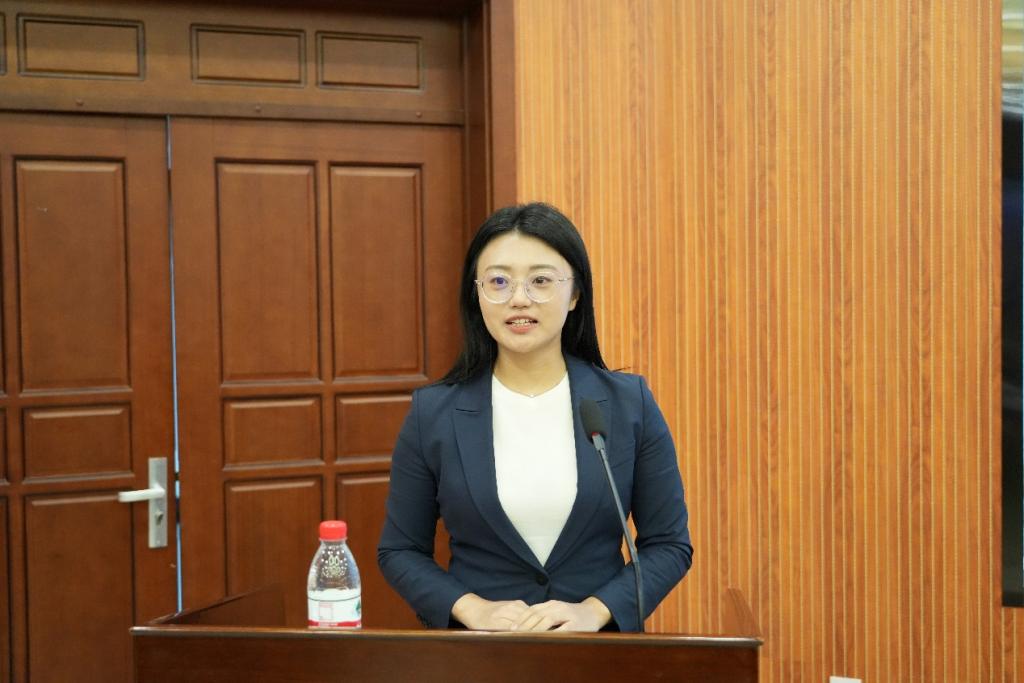
Professor Tkachenko began his speech noting the landmark trilateral meeting of the leaders of China, Mongolia, and Russia, highlighting the consensus and cooperation reached between the three countries following the 3rd Belt and Road Initiative International Cooperation Summit. He analyzed Russia’s multipolar vision, Mongolia's relationship with Russia and China, as well as Mongolia's ‘third neighbor’ foreign policy concept, based on the new foreign policy implemented by Russia in 2023. In response to the current situation, opportunities, and challenges of cooperation between the three nations, Professor Tkachenko pointed out that the China-Mongolia-Russia Economic Corridor can play a role in promoting railway construction in the Sino-Russian Far East and underdeveloped transportation areas as an important component of the Silk Road. Furthermore, future cooperation between eastern Mongolia, northeastern China, and the Sino-Russian Far East will contribute to the integration process of Northeast Asia.
Professor Cui Zheng, Executive Vice Dean of the China Open Economy Research Institute at Liaoning University, summarized and commented on the meeting. He believes that the China-Mongolia-Russia Economic Corridor is at the forefront of promoting China's opening up to the north. Actively promoting the construction of the China-Mongolia-Russia Economic Corridor and enhancing China's level of opening up to the outside world has important practical and far-reaching strategic significance.

At the final stage of the meeting, President Yu Miaojie presented Professor Tkachenko with a commemorative plate from the Overseas President's Lecture Hall of Liaoning University and presented it with his published English works. Professor Xie Di, Executive Vice Director of the Department of Economics at Liaoning University, presented Professor Tkachenko with the Liaoning University English Newspaper. Professor Huo Weidong, Deputy Director of the Department of Economics, presented Professor Tkachenko with the Liaoning University Think Tank Briefing. Dr. Kong Qiaoyu from the China Open Economy Research Institute presented Professor Tkachenko with flowers. The participating guests took a group photograph.
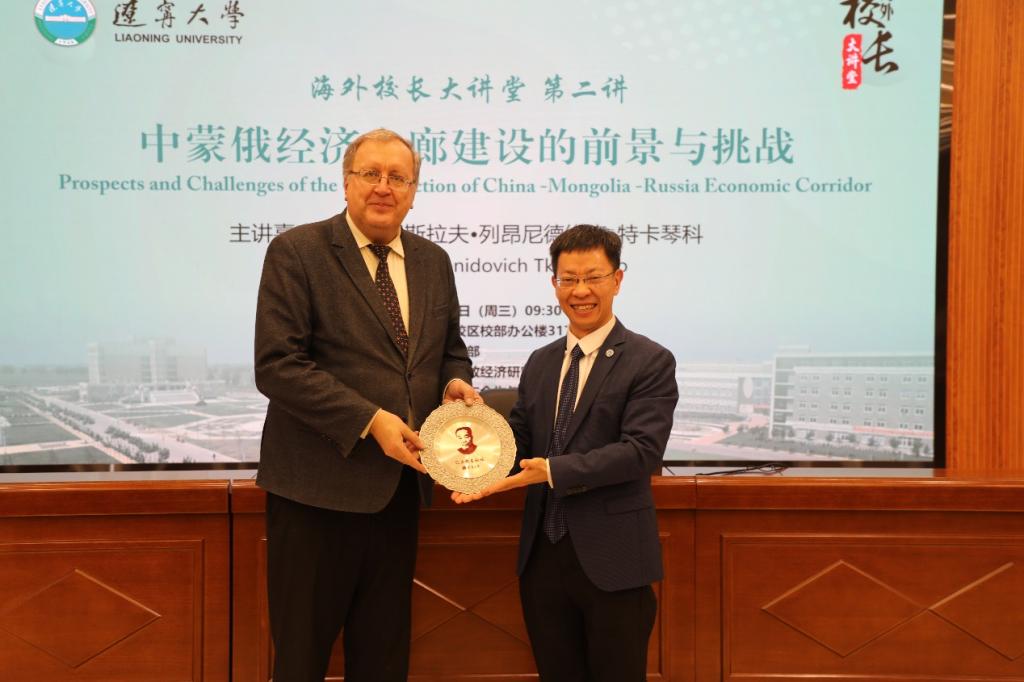
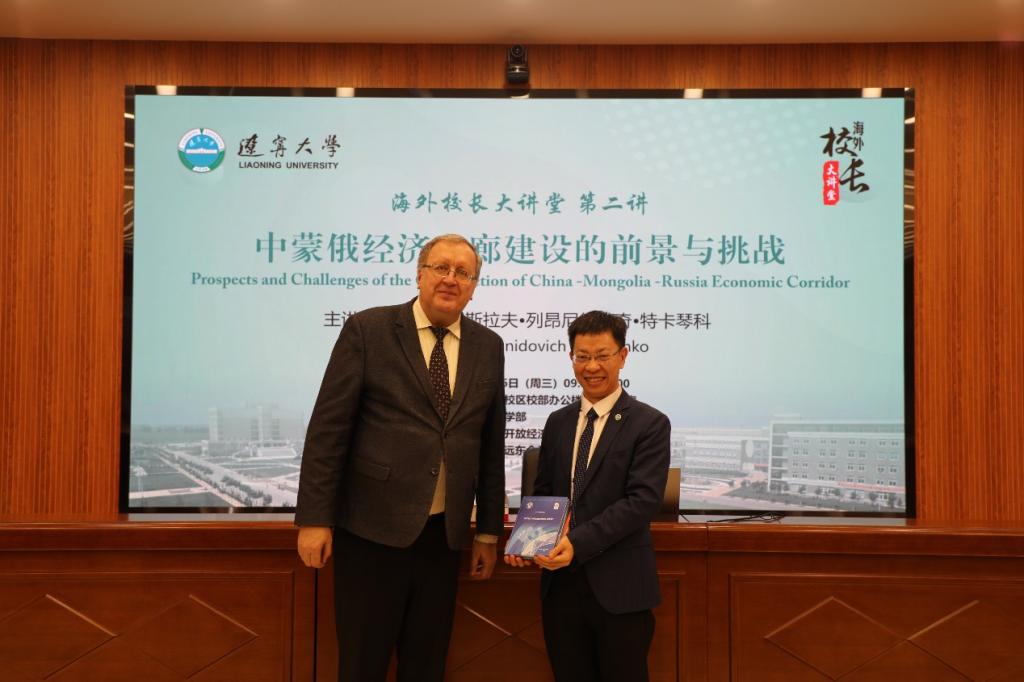
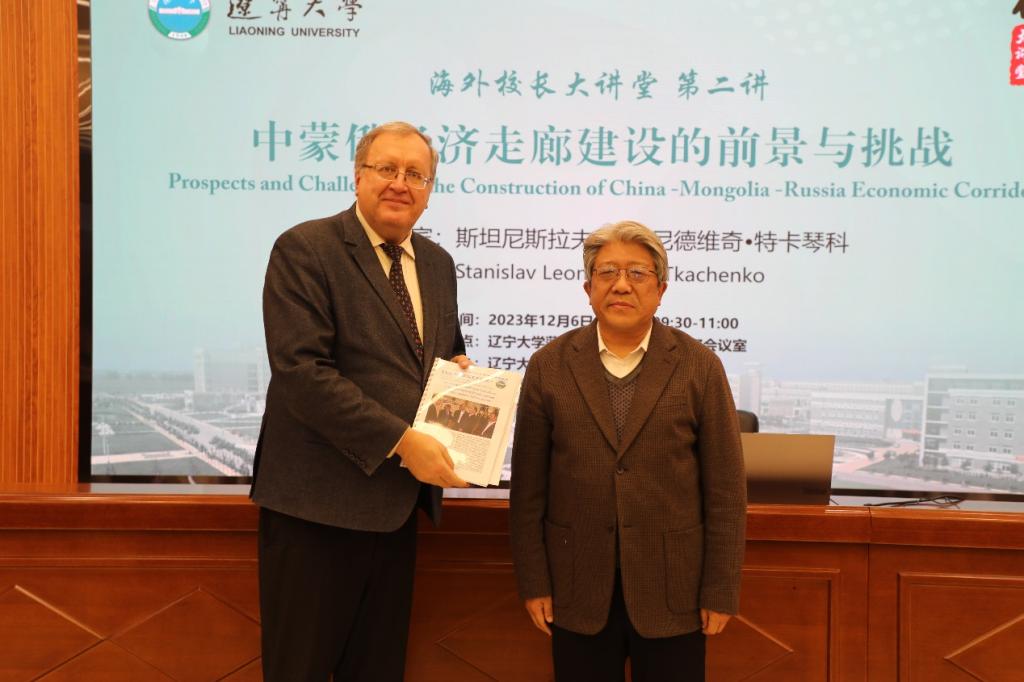
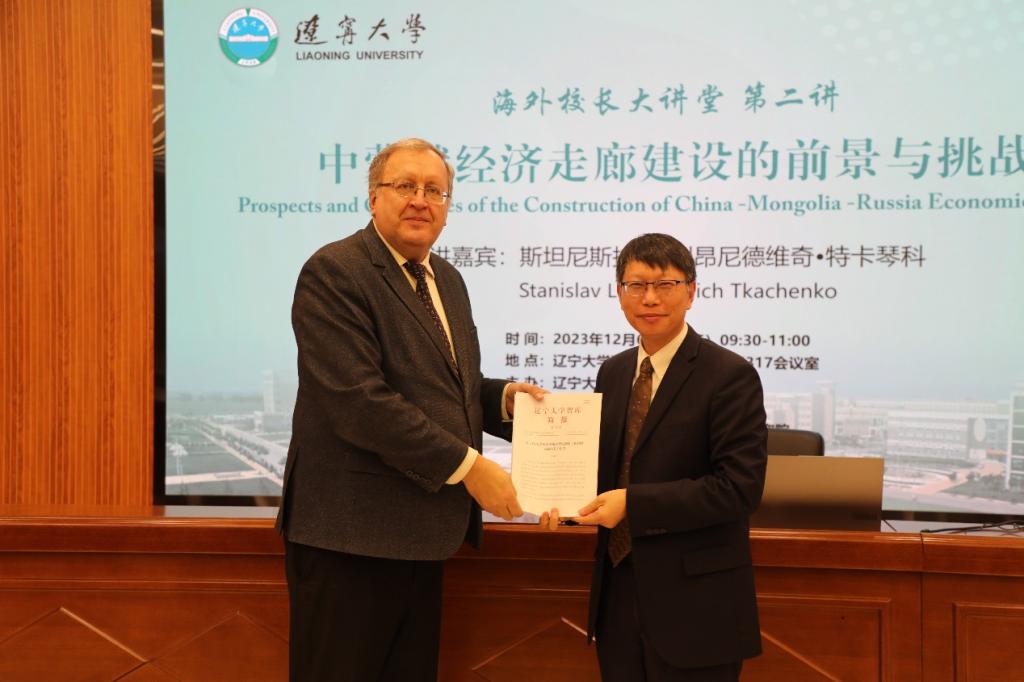
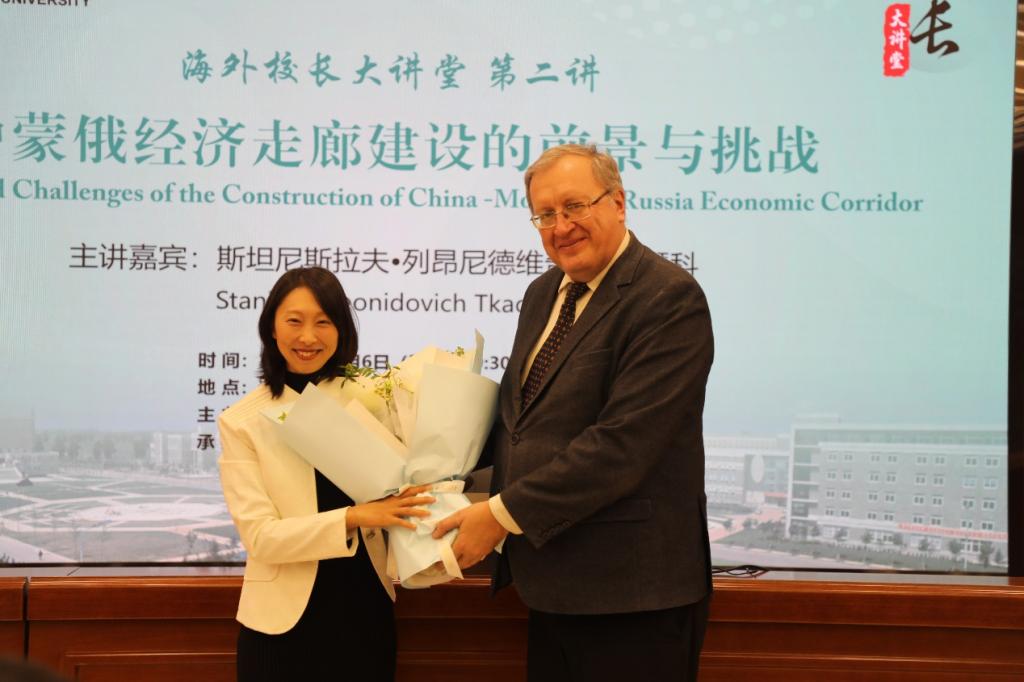
The meeting was organized by the Faculty of Economics of Liaoning University and undertaken by the China Open Economy Research Institute of Liaoning University with the Sino-Russian Far East Cooperation and Development Research Institute of Liaoning University. Those in charge and representatives of teachers and students from the affiliated units of the Department of Economics also attended the meeting.
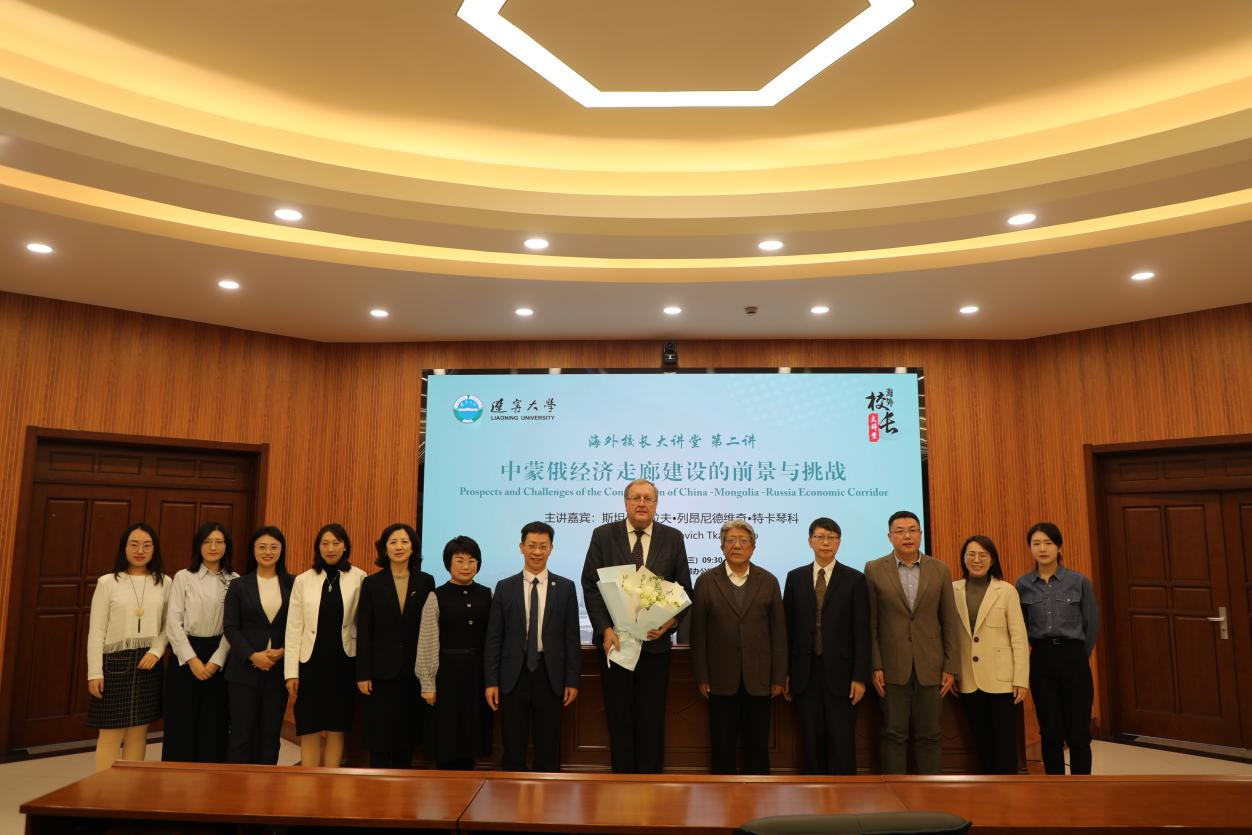
Before the presentation, President Yu Miaojie had an interview with Professor Tekachenko in the VIP room and thanked him for his visit to the university. Both sides jointly reviewed the visit of President Yu to St. Petersburg State University in Russia in June this year and had further discussion about the direction of cooperation and development between the two universities in the future.
